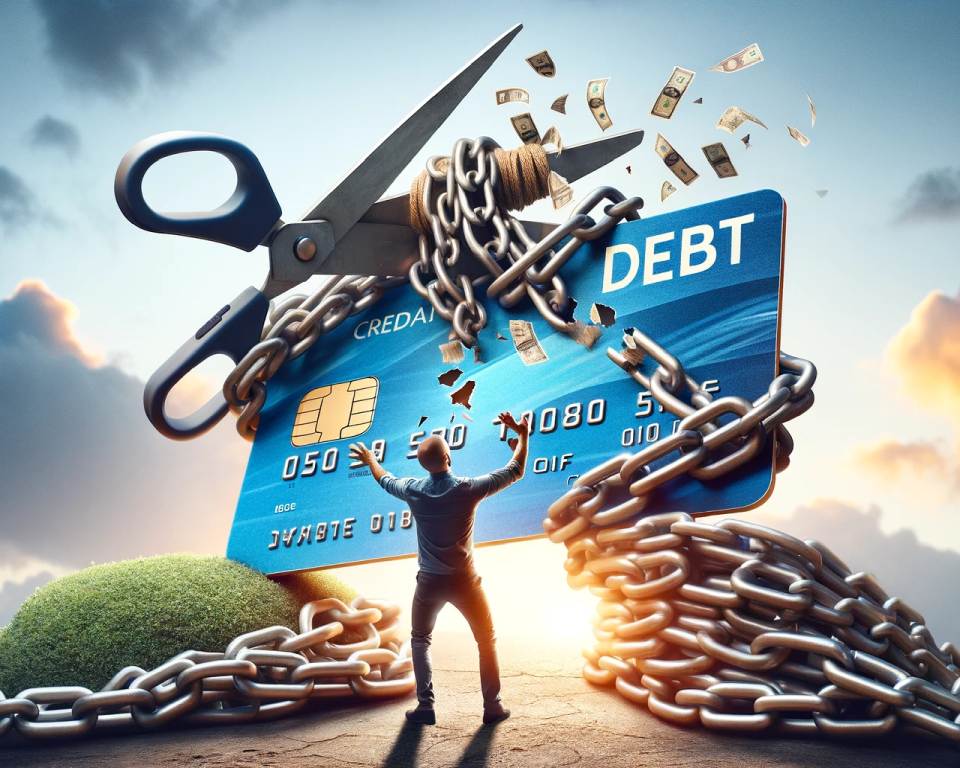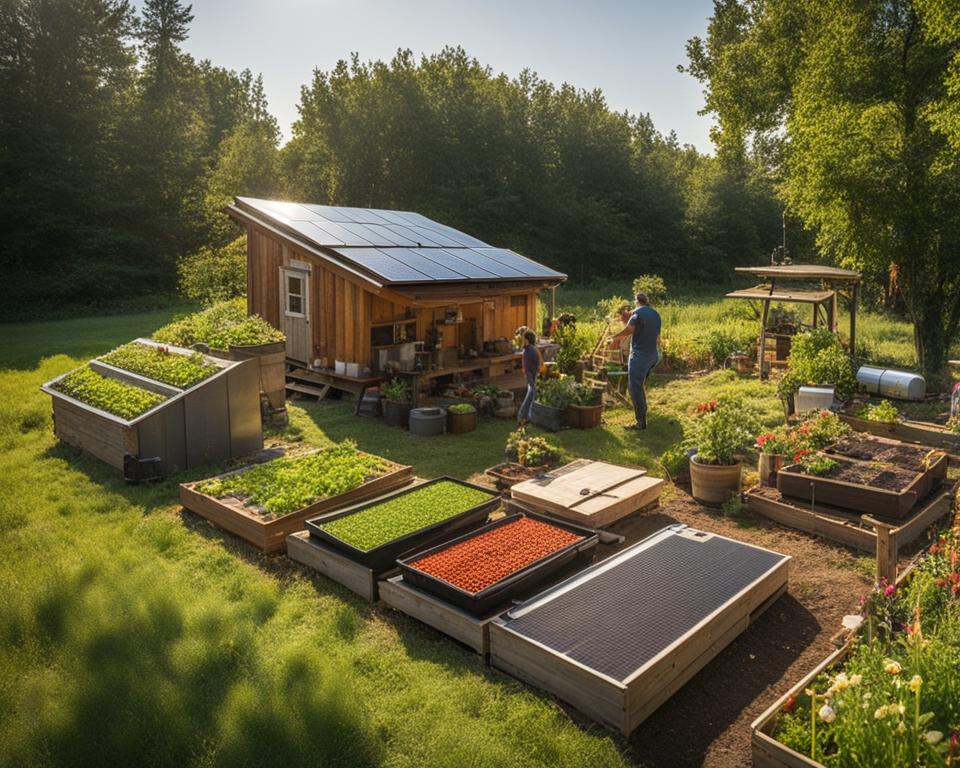The Prepper’s Guide to Financial Preparedness
Welcome to The Prepper’s Guide to Financial Preparedness, your comprehensive resource for securing your financial future as a prepper. In this guide, we will explore essential strategies and tips for prepper financial planning and money management. By implementing these expert insights, you can enhance your financial preparedness and ensure greater stability in uncertain times.
Key Takeaways:
- Financial preparedness is crucial for preppers in ensuring their security and stability.
- Prepper financial planning involves strategizing and managing resources effectively.
- Prepper money management allows for better budgeting and protection of financial assets.
- During times of economic collapse, understanding the implications and surviving financial turmoil is vital.
- Debt reduction and improving financial stability are key steps in prepping for the future.
Understanding Economic Collapse
In the realm of financial preparedness for preppers, understanding economic collapse is paramount. We need to grasp the concept of economic collapse and its potential implications for regions and nations. Looking back at historical examples, we can learn how to not only survive the resulting financial turmoil but also thrive in the post-collapse marketplace.
When an economic collapse occurs, it can have devastating effects on our financial systems and institutions. Currencies may lose their value, leading to hyperinflation and wealth erosion. Unemployment rates skyrocket, and businesses struggle to stay afloat. This disruption in the economic landscape can have far-reaching consequences, impacting people’s livelihoods and overall stability. We must be prepared for the challenges that lie ahead.
“In the depths of the Great Depression, individuals who were financially prepared fared far better than those caught off guard.” – Economist John Adams
Surviving the aftermath of an economic collapse requires resilience, adaptability, and strategic decision-making. As the social and economic fabric undergoes significant change, being flexible and resourceful becomes paramount.

The Post-Collapse Marketplace
In the post-collapse marketplace, traditional financial instruments and investment strategies may no longer hold the same value or relevance. As we navigate this new economic landscape, we need to explore alternative avenues for generating income and securing our financial well-being.
One approach is to identify emerging sectors or industries that thrive despite the economic downturn. For example, during economic collapses, essential goods and services like food, water, healthcare, and security remain in high demand. Investing in these areas and acquiring necessary skills can position us for success in the post-collapse marketplace.
Moreover, bartering and trade become essential means of exchange when traditional currency loses its value. Having in-demand items or skills to barter can help us acquire the supplies and resources we need to survive. Developing bartering skills and stockpiling valuable goods can exponentially increase our chances of thriving in this resource-constrained world.
By understanding the intricacies of economic collapse and its aftermath, we can adapt our financial preparedness strategies accordingly. Navigating the post-collapse marketplace requires foresight, flexibility, and a willingness to explore alternative forms of wealth generation. Together, we can weather the storm and emerge with financial stability.
Debt Reduction and Financial Stability
Debt reduction is one of the most crucial steps towards achieving financial stability in your prepping journey. By reducing debt and improving your financial standing, you can better prepare for any potential challenges that may arise in the future. In this section, we will provide you with practical advice on how to reduce debt and build a solid financial foundation.
One effective strategy for debt reduction is to closely monitor and manage your expenses. By tracking your spending habits and identifying areas where you can cut back, you can significantly reduce your overall debt burden. Consider creating a budget that outlines your income and expenses, allowing you to allocate funds towards debt repayment.
“Reducing expenses is key to achieving debt reduction and financial stability.”
Another approach to debt reduction is to focus on paying off high-interest debts first. By prioritizing these debts, you can minimize the amount of interest accruing, thus accelerating the repayment process. Additionally, consider negotiating with creditors to lower interest rates or explore debt consolidation options to streamline your payments.
“Paying off high-interest debts first can help you save money in the long run.”
Building an emergency fund is another essential aspect of achieving financial stability. By setting aside a portion of your income for emergencies, you can avoid accumulating more debt in unforeseen circumstances. Aim to have at least three to six months’ worth of living expenses saved in your emergency fund.
By reducing debt and improving your financial stability, you are better equipped to navigate any potential economic hardships. Remember, the key lies in managing your expenses, prioritizing debt repayment, and building a solid financial foundation.

Debt reduction is a crucial step towards achieving financial stability in your prepping journey.
Investing and Asset Protection
When it comes to financial preparedness, prepper investments and asset protection are key components. By strategically investing and safeguarding assets, preppers can enhance their financial readiness and protect their wealth in times of uncertainty.
One popular investment option for preppers is precious metals and minerals. These tangible assets, such as gold, silver, and copper, have a long history of retaining value and serving as a store of wealth. By diversifying their investment portfolio with these precious resources, preppers can mitigate the risks associated with traditional financial markets.
However, preppers must also consider the importance of asset protection in their financial planning. Safeguarding valuable possessions and protecting assets is crucial, especially in a post-collapse scenario where social and economic structures may be disrupted. This includes securing physical assets like land, property, and valuable items, as well as digital assets such as cryptocurrency.
One effective strategy for asset protection is to establish offshore accounts or trusts. These offshore entities offer additional layers of security and confidentiality, making it harder for potential adversaries to access or seize assets. Additionally, preppers should consider diversifying their assets across different jurisdictions to reduce risks and enhance protection.
“Asset protection is not about hiding assets but about creating a framework that makes it difficult for others to legally access or seize them.”
Furthermore, the importance of staying informed and making informed investment decisions cannot be overstated. Preppers should conduct thorough research, seek professional advice, and stay updated on the latest trends and developments in the investment landscape. By doing so, they can make sound investment choices that align with their long-term financial goals.
By investing wisely and taking active steps to protect their assets, preppers can fortify their financial preparedness and increase their chances of weathering financial storms. In an unpredictable world, having a well-rounded strategy that includes prepper investments and asset protection is essential for securing a stable and resilient financial future.
Barter and Trade in a Post-Collapse World
In a post-collapse world, the traditional financial system may crumble, and barter and trade will become essential for survival. As preppers, we must understand the importance of bartering and incorporate it into our financial preparedness plan.
Barter and trade allow us to exchange goods and services directly, bypassing the need for a common currency. This enables us to acquire necessary supplies, even in a resource-constrained economy.
When considering barter goods, it’s crucial to stockpile items that have practical value and high demand. Think about essential goods like food, water, medicine, and tools. These items will become valuable commodities in a post-collapse world, and possessing them can provide us with leverage in trade negotiations.
However, bartering successfully requires more than just stockpiling goods. It also depends on developing strong bartering skills. We must learn the art of negotiation, determining fair trade values, and assessing the needs of others. These skills will enable us to create mutually beneficial trade agreements and establish valuable connections within our post-collapse community.
As we navigate the challenges of a post-collapse economy, barter and trade will be the currency of choice. By incorporating these principles into our financial preparedness plan, we can ensure our ability to secure essential supplies and increase our chances of survival.

Personal Financial Security
When it comes to prepper financial preparedness, personal financial security plays a crucial role. In times of crisis, having a stable financial foundation can provide the peace of mind and resources necessary to navigate difficult circumstances. To ensure your financial security as a prepper, it is essential to focus on emergency savings, budgeting, and managing expenses.
Building emergency savings is a key aspect of preparing for unpredictable situations. Set aside a portion of your income each month to create a dedicated emergency fund. This fund should ideally cover at least three to six months of living expenses, including essential needs such as food, shelter, and healthcare. By having an emergency savings account, you can protect yourself and your family during challenging times.
Effective budgeting is another vital component of personal financial security. Develop a detailed budget that outlines your income, expenses, and savings goals. Take an in-depth look at your financial situation and identify areas where you can cut back expenses. By prioritizing your spending and allocating funds to essential items, you can ensure that you are financially prepared for any disruptions that may occur.
Managing expenses is crucial in maintaining financial security. Take the time to evaluate your monthly bills and explore ways to reduce costs. Consider options such as downsizing your living arrangements, cutting back on non-essential expenditures, and finding more affordable alternatives for everyday expenses. By carefully managing your expenses, you can stretch your resources further and enhance your financial stability.
Prioritizing personal financial security through emergency savings, budgeting, and expense management is essential for preppers. By focusing on these aspects, you can achieve a higher level of preparedness and protect yourself and your loved ones in times of crisis.
Self-Sufficiency and Financial Independence
Achieving self-sufficiency and financial independence is a critical goal for preppers. We understand the importance of being self-reliant and financially prepared in times of uncertainty. By reducing dependencies and investing in self-sufficiency, preppers can enhance their financial preparedness and increase their chances of long-term survival.
At the core of self-sufficiency lies the ability to meet our own needs without relying heavily on external systems. It involves developing skills and acquiring knowledge that enable us to be self-reliant in various aspects of our lives. From growing our own food to generating renewable energy, self-sufficiency empowers us to navigate challenging circumstances and maintain our well-being.
In our quest for financial independence, we strive to free ourselves from the constraints of traditional society. This means taking proactive steps towards reducing our reliance on a fragile and unpredictable economy. Preppers prioritize financial independence by diversifying income streams, investing wisely, and reducing expenses.
Investing in Self-Sufficiency
One way to achieve self-sufficiency is by investing in sustainable practices and resources. This includes developing skills such as gardening, carpentry, and food preservation, which allow us to produce our own essentials. By embracing renewable energy sources like solar power or wind turbines, we can reduce our dependence on centralized energy grids.
Building infrastructure for water collection and purification ensures access to clean water in times of scarcity, further enhancing our self-sufficiency. Additionally, learning basic first aid and emergency medical skills empowers us to address health concerns without relying solely on healthcare systems.
A Sustainable Lifestyle
In our pursuit of self-sufficiency, we understand the importance of adopting a sustainable lifestyle. We strive to minimize waste, conserve resources, and rely on reusable and eco-friendly products. By reducing our consumption and embracing frugality, we can save money and allocate our resources towards investments that enhance self-sufficiency.
Developing a strong network of like-minded individuals within our community is also essential. Collaborating with others allows us to exchange goods, services, and knowledge, fostering a sense of self-reliance within a supportive community.
“Achieving financial independence and self-sufficiency is not an overnight process. It requires dedication, persistence, and a long-term mindset. By taking small steps towards self-reliance, we can gradually build our financial resilience and position ourselves for a more secure future.”

As preppers, we recognize that self-sufficiency and financial independence are interconnected. By embracing a self-reliant lifestyle and reducing financial dependence, we strengthen our overall preparedness. We encourage fellow preppers to prioritize self-sufficiency in their financial planning and strive towards achieving true independence in the face of uncertainty.
Putting It All Together: The Prepper’s Financial Plan
Now that we’ve explored the various aspects of financial preparedness, it’s time to put it all together and create a prepper’s financial plan. By integrating different strategies and tactics, we can build a comprehensive plan that ensures our financial survival in any future challenges.
First and foremost, it’s crucial to establish a prepper financial plan that includes budgeting, debt reduction, and expense management. This plan will help us allocate resources effectively, reduce debt, and increase our financial stability. By carefully monitoring our finances and sticking to a budget, we can maximize our savings and be better prepared for unexpected events.
In addition to budgeting, we should diversify our investments to protect and grow our assets. Precious metals, real estate, and other tangible assets can provide stability and safeguard against economic downturns. By making informed investment decisions and implementing asset protection strategies, we can fortify our financial position.
Lastly, barter and trade skills should not be overlooked. In a post-collapse world, being able to exchange goods and services will be invaluable. Stockpiling essential items and developing bartering skills will ensure our ability to acquire necessary supplies when traditional currency might lose value. By fostering self-sufficiency and enhancing our financial independence, we can secure our future.







